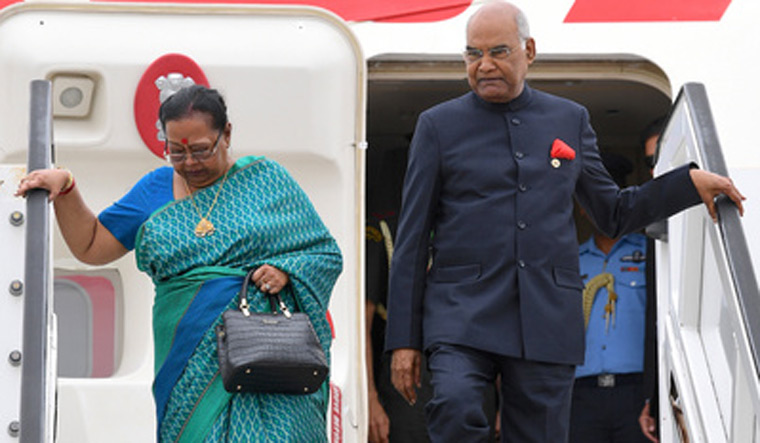President Ram Nath Kovind has scripted history by becoming the first Indian president to visit Australia. Kovind, who is on his sixth overseas trip this year, reached Down Under on Wednesday on a three-day visit. The visit, India hopes, would help the country deepen ties with Australia.
President Kovind is defying conventions with his visit. Traditionally, Indian presidents have not visited Australia as the queen is the head of that country. By choosing to set aside traditions, President Kovind wants to send across a message to the Australians. “It is a visit that is more symbolic than substantial,'' said Abhijit Singh, senior fellow at Observer Research Foundation. “The President, who is very active and political, has chosen to defy convention to send the message that they (Australians) are special.”
Focusing on the softer side of the relationship, President Kovind will reach out to the Indian community, speak at Melbourne University and unveil a statue of Mahatma Gandhi in Parramatta of New South Wales. He will also address the Australian Financial Review Business event and attend the annual dinner of the Australia-India Business Council.
Also read
- ‘Simultaneous poll committee to hold first meeting on Sept 23’, says Former Prez Kovind
- What are the retirement benefits of former president Ram Nath Kovind
- Droupadi Murmu sworn in as President
- In his farewell message to nation, Kovind asks people to take care of environment
- Outgoing President Kovind urges parties to rise above partisan politics
The relationship between India and Australia is far from reaching its potential. Prime Minister Narendra Modi, during his maiden trip to Australia in 2014, promised Australians that they would not have to wait another 28 years to see the visit of another prominent Indian leader to that country. Before Modi's visit, the last Indian prime minister to visit Australia was Rajiv Gandhi. “Australia will not be at the periphery of our vision, but at the centre of our thoughts,'' Modi had told lawmakers.
So far, India too has remained outside the vision of Australians. In terms of trade, India is only the tenth biggest trade partner for Australia and the relationship is off balance—Indian companies invest more in Australia. Trade between the two was $19 billion in 2015–16 while China accounted for $150 billion in trade with Australia. Merchandise trade declined by 50 per cent in value since 2010.
Recently, the former Australian high commissioner to India, Peter Varghese, authored a report in an attempt to get Australia to take notice of India. The report, 'An India Economic Strategy to 2035’, argues that better economic relationship with India will help Australia balance its over-dependence on China. “Today, the risk is that we are not moving fast enough and Australia might fall behind as other countries accord India a higher priority...We cannot afford to lose momentum or to assume that the logic of complementary interests will be enough to take the economic relationship to the level it needs to rise,'' he wrote.
This is not easy. For India, one thing is clear: the relationship they want with Australia is all about money. The Australians are still hesitant to invest in India because of corruption and red-tapism. There is a growing awareness about India, but only in the strategic sphere of Indo-Pacific (read to contain China).
As the “spirit of Wuhan'', as Singh puts it, still dictates India's relationship with China, the country is a little reluctant to be drawn into any serious defence agreements. Hence, Kovind's visit makes sense. “Our vision of the Indo-Pacific as articulated by the prime minister at Shangri La is more conciliatory. The United States is on rule-based order and they want to call out China,'' Singh said.
Any cooperation with Australia on defence and maritime, especially with their tough stance on the Indo-Pacific, will rub China the wrong way. India does not want this, at least till the Lok Sabha polls. President Kovind's visit to the country—especially at a time when the Indo-Pacific is a concept that is catching ground—does imply that Australia is still in the periphery. The question is, can it be the centre of thought? And do the Aussies want it, especially, without any promises in the security sphere?



